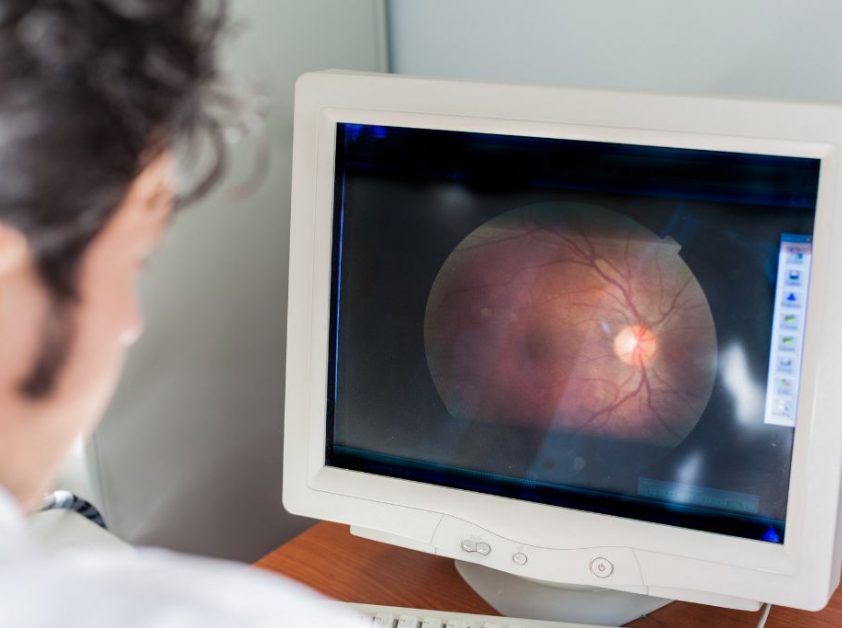When to See a Retina Specialist
Vision is checked, corrective lenses prescribed, and various eye problems diagnosed, treated, and prevented by your eye doctor (optometrist or ophthalmologist). However, your eye doctor may recommend seeing a retina expert for more complex retinal issues.

After completing their ophthalmology residency, retina specialists specialize in illnesses and surgeries of the retina and vitreous body of the eye for an additional year or two. This field of study is sometimes known as vitreoretinal medicine or vitreoretinal surgery.
The retina lines the back of the eye and comprises a layer of nerve cells. A person's ability to see depends on the retina's ability to take in light and send that data to the brain's processing center.
Specialists in retina care for patients with a wide variety of eye conditions. The most frequent medical issues and illnesses that will signal you when to see a retina specialist are listed below.
Condition No. 1: A Retinal Condition Brought on By Diabetes
Retinal microangiopathy is a diabetic complication characterized by the development of aberrant blood vessels. Some people may not experience any visual symptoms early in the disease's progression, but if they aren't watched and treated, they could go blind.
Condition No. 2: Macular Degeneration Associated with Aging
Reading, seeing color, and identifying minute details rely on the macula in the retina's center. With macular degeneration, the macula deteriorates, making it hard to see fine details in the center of the visual field.
Condition No. 3: Detachments, Tears, and Holes in the Retina
The separation of the retina from the rest of the eye's tissues is known as retinal detachment. It can result in total blindness if left untreated. Detachment of the retina can result from damage to the retina, such as tears or holes. Floaters and flashes may be early warning signs of retinal tears, perforations, or detachment.
Condition No. 4: Additional Eye Problems
A retina specialist is needed for the evaluation and treatment of several less severe disorders, such as:
- Macula Vacant
It is a macula hole, leading to central blurriness in vision.
- Malignant Choroidal Nevus
Malignant tumors can form between the retina and the eye's sclera.
- Epiretinal Membrane
It is a thin layer of tissue that develops outside the macula. As a result, it can impair your ability to see in the center of your vision.
- Occlusion of a Retinal Vein
Retinal vein occlusion occurs when a blockage prevents blood from flowing out of the retina's tiny veins.
- Uveitis
This inflammation affects the uvea, the middle layer of the eye's wall. Leaving it untreated can result in irreversible eyesight loss.
Identifying a Qualified Retina Specialist
Because of their significance and vulnerability, your eyes should only be treated by those qualified!
The retina is a crucial component of your eye. Any kind of harm to it can result in severe vision issues or even total blindness. A retina expert is the one to see if you have any suspicions about a retinal problem.
But not every expert is created equal. Some are excellent, while others are simply better. In choosing an eye doctor, it's essential to look for the following to make sure your eyes are in good hands:
1) Qualifications
The kinds of medical problems a doctor can treat are limited by their area of expertise. An ophthalmologist with additional training in retina and vitreous disorders is called a retina specialist.
It indicates that they have dedicated at least two years to researching and learning about treatments for retinal disorders. Thus, while an ophthalmologist can aid in general eye care, they are not qualified to treat retinal diseases.
2) Member of a Qualified Group Specialist
Among the various organizations throughout the world that help govern the profession and keep its best practices in check is the American Society of Retina Specialists.
There is more to a membership certificate in a society. It demonstrates your retina specialist's expertise and dedication by documenting their participation in ongoing education and training programs. As a group member, you are responsible for upholding the group's standards, such as practicing honest and fair conduct at work and committing to ongoing academic development.
3) Referral
An individual's regular eye doctor is usually the best source of referrals. Your doctor has a good idea of what services you require. Therefore, they should be able to suggest someone who can help you out.
In addition, it shouldn't be too difficult for your primary care physician to confer with a retina expert regarding your eye condition. If you don't have access to an eye care professional, you may always inquire about it among your friends and family; this is especially true if any of them have undergone treatment for a similar problem.
You can always do some research online if that doesn't yield any results. You can find trustworthy websites that provide in-depth reviews of local physicians at any time.
4) Experience
While finding a retina expert with a solid academic background is essential, nothing beats having someone with substantial real-world experience. Get a second opinion from a doctor if you don't feel like your current one is up to par. Knowing that your specialist is qualified to treat your retinal disease should put your mind at ease.
